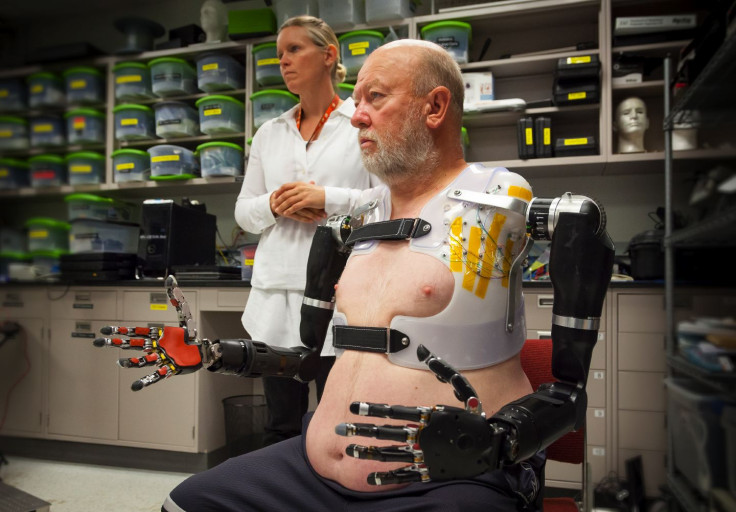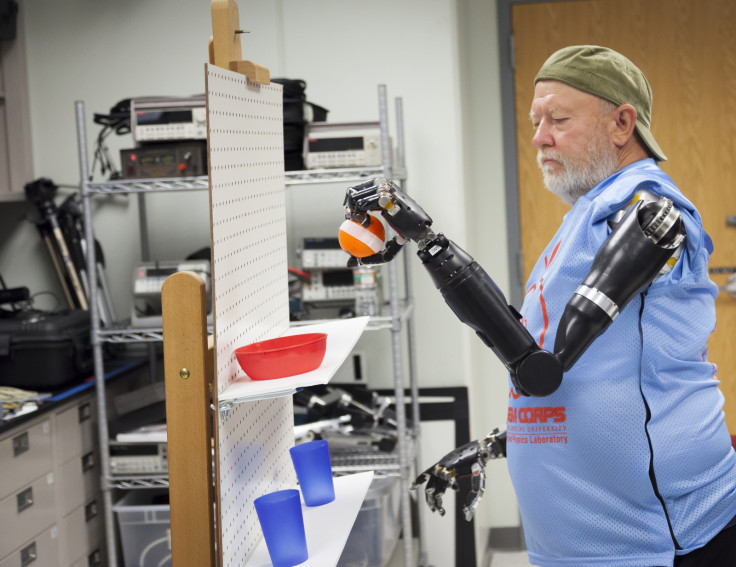Colorado man Les Baugh with no arms controls two prosthetics with just his mind

A double amputee has become the first person in the world to control two prosthetic limbs with just his mind.
John Hopkins University announced that Les Baugh, a man who lost both his arms up to his shoulders in an electrical accident 40 years ago, has worn and controlled two Modular Prosthetic Limbs (MPL).
He was able to operate the system just by thinking about moving the prosthetic arms and scientists say he surpassed all expectations.
Courtney Moran, a prosthetist working with Baugh, said: "We expected him to exceed performance compared to what he might achieve with conventional systems, but the speed with which he learned motions and the number of motions he was able to control in such a short period of time was far beyond expectation.

"What really was amazing, and was another major milestone with MPL control, was his ability to control a combination of motions across both arms at the same time. This was a first for simultaneous bimanual control."
Baugh had to undergo a surgery known as targeted muscle reinnervation before testing the limb system.
The procedure involves reassigning the nerves that once controlled the arms and hands. "By reassigning existing nerves, we can make it possible for people who have had upper-arm amputations to control their prosthetic devices by merely thinking about the action they want to perform," said Albert Chi, trauma surgeon at John Hopkins.
Once he recovered, he began training with the MPLs. Scientists used pattern recognition algorithms to find individual muscles and how they communicate with one another. This information was then translated into actual movements with the prosthetics.
Baugh was fitted with a custom socket for his torso and shoulders to support the limbs, which also serves to make the neurological connections with the new nerves.
Scientists then had him work with a Virtual Integration Environment – a virtual reality version of the MPL. Baugh was then able to move several objects – including putting an empty cup on a high shelf – through mind control: "I just went into a whole different world," he said.
Moran said: "This task simulated activities that may commonly be faced in a day-to-day environment at home. This was significant because this is not possible with currently available prostheses. He was able to do this with only 10 days of training, which demonstrates the intuitive nature of the control."
Principal investigator Michael McLoughlin added: "I think we are just getting started. It's like the early days of the Internet. There is just a tremendous amount of potential ahead of us, and we've just started down this road. And I think the next five to 10 years are going to bring phenomenal advancement."
© Copyright IBTimes 2025. All rights reserved.






















